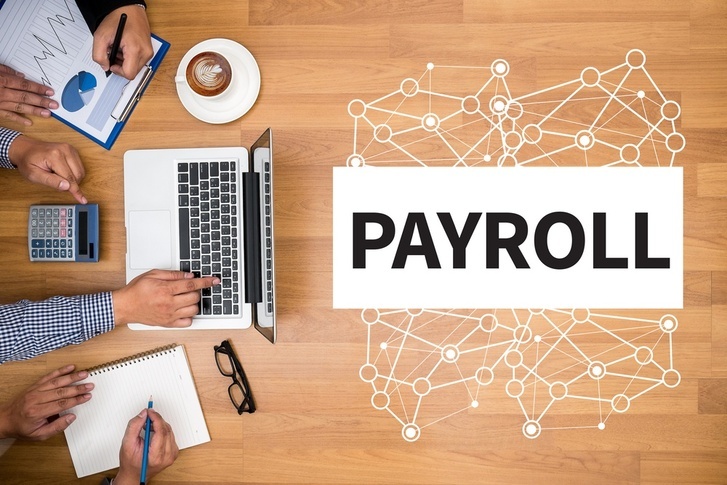Payroll Solutions for Small Businesses
In this article, we’ll explore the range of payroll solutions available to small business owners, helping you to make an informed decision that fits your business needs.

h1: Overview of Payroll Software
Payroll software automates the process of managing employee payments, taxes, and compliance, saving businesses time and reducing errors. With various options available, choosing the right software depends on your budget and specific needs.
h2: Price and Affordability Analysis
To help you understand the affordability of payroll software, we’ve analyzed different options based on their costs and value propositions. Here is a detailed breakdown of specific payroll software:
| Software | Price Range | Key Features | Free Trial |
|---|---|---|---|
| Gusto | $39/mo + $6/user | Comprehensive payroll, benefits, compliance | Yes |
| QuickBooks Payroll | $45/mo + $4/user | Integration with QuickBooks, tax penalty protection | Yes |
| Patriot Payroll | $10/mo + $4/user | Affordable, simple setup, free direct deposit | Yes |
| Paychex Flex | $39/mo + custom | Scalable solutions, HR tools | Yes |
| Wave Payroll | $20/mo + $6/user | Best for small businesses, integrates with Wave | No |
h3: Benefits of Payroll Software
Bullet List of Benefits:
- Time-Saving: Automates payroll calculations and tax filings.
- Accuracy: Reduces human errors in payroll processing.
- Compliance: Ensures adherence to tax laws and regulations.
- Employee Self-Service: Allows employees to access their pay information.
- Scalability: Can grow with your business needs.
h4: Q&A Section
Q1: What are the typical costs of payroll software? A1: Costs can range from $10 per month plus per-user fees to around $45 per month plus per-user fees, depending on the features and service level.
Q2: Can payroll software handle tax filings? A2: Yes, most payroll software handles federal, state, and local tax filings, ensuring compliance and accuracy.
Q3: What should I look for in payroll software? A3: Key factors to consider include cost, ease of use, integration with other software, customer support, and features such as direct deposit and tax filing.
h2: Detailed Cost vs. Affordability Analysis
Understanding the relationship between cost and affordability is crucial when choosing payroll software. The following table compares various aspects to help you evaluate the best options:
| Factor | Low-Cost Software | Mid-Range Software | High-Cost Software |
|---|---|---|---|
| Price Range | $10/mo + $4/user | $20/mo + $6/user | $39/mo + $6/user |
| Affordability | High | Moderate | Low |
| Ease of Use | Moderate | High | Very High |
| Features | Basic to moderate | Moderate to comprehensive | Comprehensive |
| Customer Support | Limited | Moderate | Extensive |
| Integration Capabilities | Limited | Moderate | Extensive |
h3: Tips for Choosing the Right Payroll Software
- Assess Your Needs: Determine the size of your business and specific payroll requirements.
- Compare Costs: Evaluate monthly fees and per-user charges to find an affordable option.
- Check Features: Ensure the software offers essential features like tax filing, direct deposit, and compliance tools.
- Read Reviews: Look for user reviews and ratings to gauge customer satisfaction.
- Explore Free Trials: Take advantage of free trials to test the software before committing.
h2: Top Payroll Software Options
h3: Gusto
Price Range: $39/mo + $6/user
Highlights: Comprehensive payroll, benefits, compliance
Free Trial: Yes
h3: QuickBooks Payroll
Price Range: $45/mo + $4/user
Highlights: Integration with QuickBooks, tax penalty protection
Free Trial: Yes
h3: Patriot Payroll
Price Range: $10/mo + $4/user
Highlights: Affordable, simple setup, free direct deposit
Free Trial: Yes
h3: Paychex Flex
Price Range: $39/mo + custom pricing
Highlights: Scalable solutions, HR tools
Free Trial: Yes
h3: Wave Payroll
Price Range: $20/mo + $6/user
Highlights: Best for small businesses, integrates with Wave
Free Trial: No
By carefully considering these factors, you can select payroll software that offers the best value for your investment. Whether you are a small business or a growing enterprise, the right payroll software can streamline your processes and ensure compliance, saving you time and reducing errors.



 . The software’s user-friendly interface allows businesses to easily navigate and manage their payroll processes, even for those with limited payroll experience. ADP Run’s scalability ensures that it can grow with your business, offering various pricing plans to accommodate different needs and budgets. With strong customer support and a variety of online resources, ADP Run provides businesses with the tools and assistance they need to effectively manage their payroll and HR tasks.
. The software’s user-friendly interface allows businesses to easily navigate and manage their payroll processes, even for those with limited payroll experience. ADP Run’s scalability ensures that it can grow with your business, offering various pricing plans to accommodate different needs and budgets. With strong customer support and a variety of online resources, ADP Run provides businesses with the tools and assistance they need to effectively manage their payroll and HR tasks.







Recent Comments